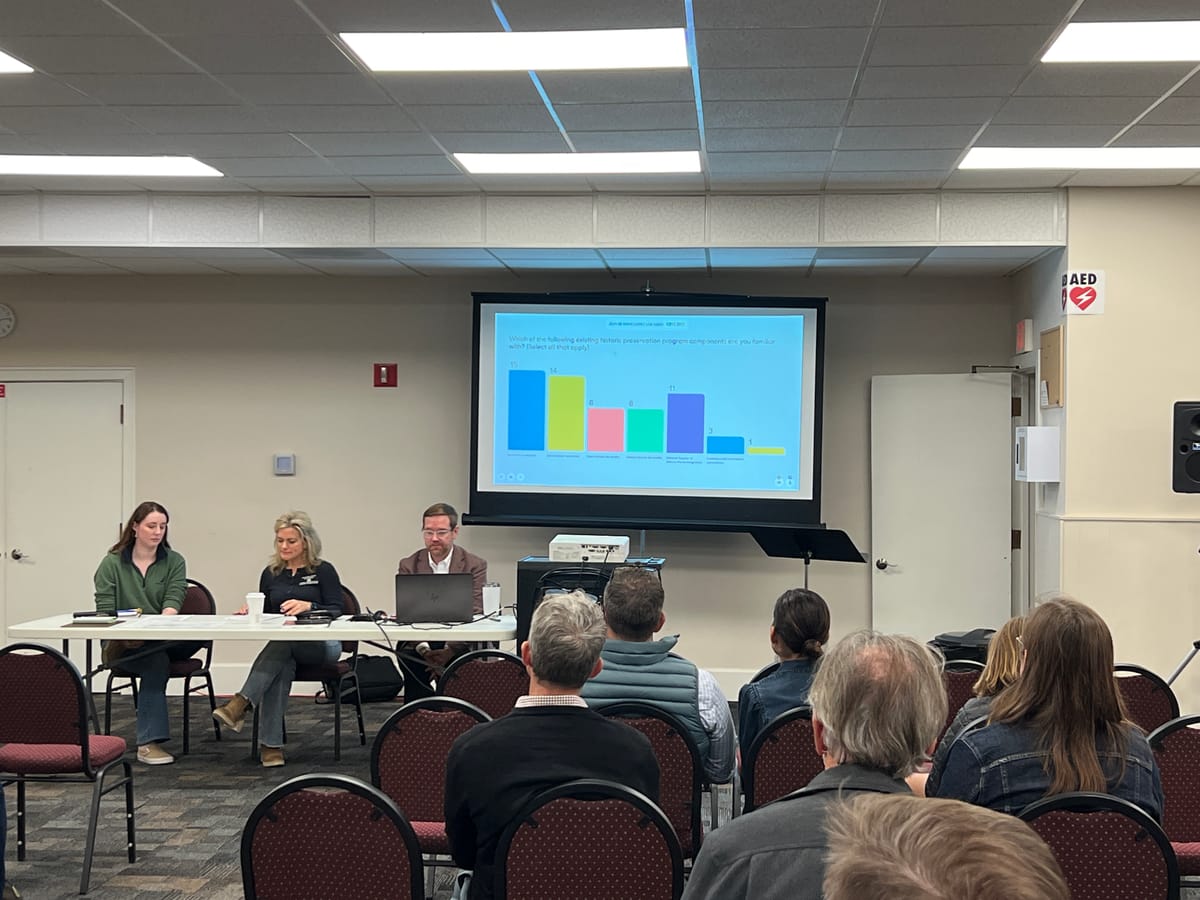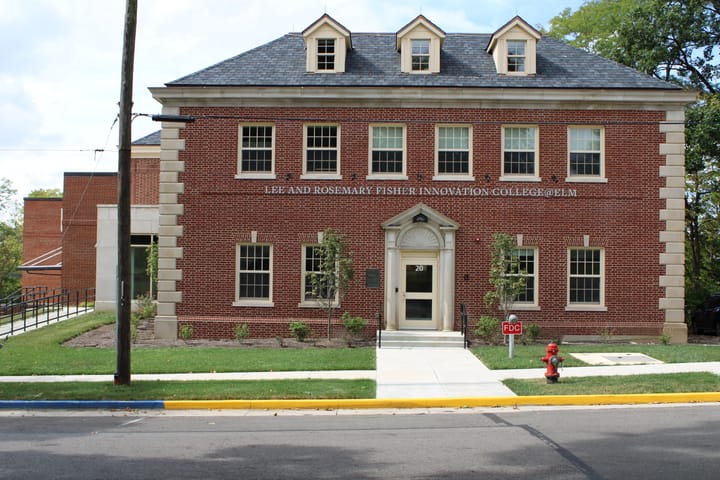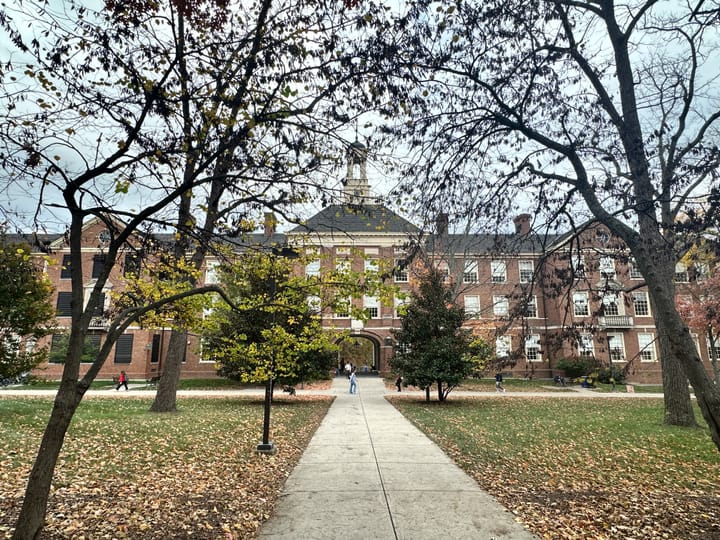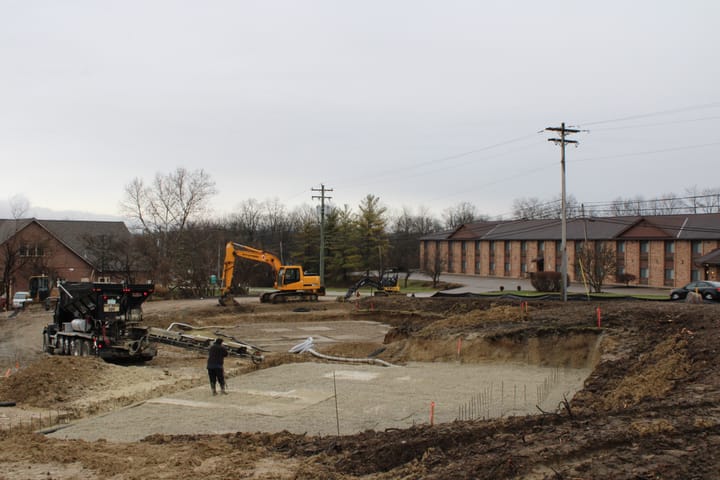New approach to zoning, listing on National Register of Historic Places among suggestions at Oxford town hall
Oxford is in the early stages of a nine-month process to create a unified development code and update its historic preservation guidelines. The city has contracted with consulting firm McKenna to help.

Oxford’s zoning code could be in for a major zoning overhaul.
At a town hall meeting Oct. 24, staff members with McKenna, a consulting firm which Oxford recently contracted with, kicked off the process of creating a unified development code (UDC) and creating a historic preservation plan for the city. Roughly two dozen people attended the meeting, many of them city employees and officials or members of government commissions.
Paul Lippens, vice president of McKenna, led the town hall, which included interactive polls with attendees to get feedback on their priorities. Lippens said McKenna is planning on a nine-month process to create the city’s UDC. The firm will also develop historic design guidelines and a historic preservation plan for Oxford at the same time.
So far, Lippens said they’ve analyzed Oxford’s 2023 Comprehensive Plan as a starting point
“What we’re trying to do is implement zoning code,” Lippens said. “We’re making sure in these public engagement sessions to check in to make sure that some of the policies and ideas that the city heard during that comprehensive planning process are still relevant … We’re going to use what we hear … to actually develop recommendations that are aligned with what we hear.”
According to the Oxford Today website, the goal of the UDC is to “streamline planning and zoning processes” by creating easy-to-navigate regulations for residents and developers. Lippens said the goal is to unify Oxford’s zoning standards and ensure that people across various zoning districts have an equitable and transparent development process. The historic preservation plan and design guidelines will aim to “preserve historic resources” and create attractive commercial regions.
McKenna’s work will not involve changes to parks or public spaces or change existing conforming uses. Current buildings and businesses will not be retroactively impacted by the code updates.
Adam Cook, a planning consultant with McKenna, said during the meeting that the firm will consider elements of form-based zoning, an alternative to the more common functional zoning. Functional zoning defines acceptable and unacceptable uses within districts as the primary factor. Form-based zoning, meanwhile, puts more emphasis on the physical form of buildings rather than building use.
Much of the discussion during the town hall focused on historic preservation. Jessica Flores, founder of consulting firm Preservation Forward which is assisting McKenna in the development of Oxford’s historic preservation plan and design guidelines, led the conversation on how to address the city’s historic resources.
Flores advocated for listing Oxford’s Uptown Historic District in the National Register of Historic Places. The register doesn’t burden property owners with additional standards, she said, but it does open up more grant opportunities for the city.
Matt Rodbro, a developer in Oxford, grew up in the city and attended the town hall. He said developers have financial incentives to invest outside the historic district and use cheaper materials or building techniques. The Historic and Architectural Preservation Commission (HAPC), he said, helps eliminate some of that incentive.
“[The HAPC] creates an even playing field where I can go build the best building I can build, right in the historic district and not have to worry about somebody building a much cheaper version next door and beating me on price … I think the HAPC should have control over the entire Mile Square,” Rodbro said.
The current Uptown Historic District roughly encompasses Church Street to Walnut Street from north to south and Poplar Street to College Avenue from east to west. Rodbro said its expansion would be unpopular with other developers but would raise the bar for building quality.
During the interactive polling portion of the town hall, attendees ranked encouraging adaptive reuse of historic buildings and preventing unnecessary demolition of historic resources as top priorities. The attendees were generally opposed to more bars, additional student housing, fast food and gas stations Uptown but wanted to see more entertainment options, mixed-use buildings and destination retail further out.
Lippens said the next step is to meet with a technical committee to draft regulations and recommendations for the city. He plans to hold another public meeting in January or February to get more community input.
Sam Perry, community development director for Oxford, said residents looking to provide feedback can do so through the Oxford Today website at cityofoxford.org/oxfordtoday. Perry said his office is also open to take feedback in person at the municipal building.




